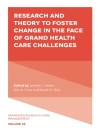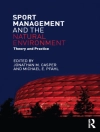“Classical Economics Today: Essays in Honor of Alessandro Roncaglia” is a collection of essays that investigates and applies the method and principles of Classical political economy to current issues of economic theory and policy.
The contributors to the volume, like all classical economists in general, regard history as a useful tool of analysis rather than a specialist object of investigation. By denying that a single, all-encompassing mathematical model can explain everything we are interested in, Classical political economy necessarily requires a comparison and integration of several pieces of theory as the only way to discuss economics and economic policy. Economists inspired by the Classical approach believe that economic theory is historically conditioned: as social systems evolve, the appropriate theory to represent a certain phenomenon must evolve too. Therefore, plurality in methods, including the history of economic thought, must be a deliberate choice, as evidenced by the essays in “Classical Economics Today: Essays in Honor of Alessandro Roncaglia.”
“Classical Economics Today” is a tribute to Alessandro Roncaglia, to his personality and his research interests. Roncaglia’s research is based on Schumpeter’s dictum that good economics must encompass history, economic theory and statistics, and therefore does not generally take the form of elegant formal models that are applicable to all and everything. In this direction, Roncaglia is inspired by the Classical economists of the past, and becomes a model for present-day Classical economists. A perceptible family air imbues the essays: all the contributors are friends of Roncaglia and see his personality and his interests as a common point of reference.
Inhoudsopgave
List of Illustrations; Preface; Acknowledgments; Chapter One The Reconstruction of an Alternative Economic Thought: Some Premises, Salvatore Biasco; Chapter Two Reflections on Unity and Diversity, the Market and Economic Policy, Jan Kregel; Chapter Three Ending Laissez- Faire Finance, Mario Tonveronachi; Chapter Four Democracy in Crisis: So What’s New?, Michele Salvati; Chapter Five The Democracy of Ideas: J. S. Mill, Liberalism and the Economic Debate, Marcella Corsi and Carlo D’Ippoliti; Chapter Six Turgot and the Division of Labor, Peter Groenewegen; Chapter Seven Agricultural Surplus and the Means of Production, Gianni Vaggi; Chapter Eight The Role of Sraffa Prices in Post- Keynesian Pricing Theory, Geoffrey Harcourt; Chapter Nine Classical Underconsumption Theories Reassessed, Cosimo Perrotta; Chapter Ten On the “Photograph” Interpretation of Piero Sraffa’s Production Equations: A View from the Sraffa Archive, Heinz D. Kurz and Neri Salvadori; Chapter Eleven On the Earliest Formulations of Sraffa’s Equations, Nerio Naldi; Chapter Twelve Normal and Degenerate Solutions of the Walras- Morishima Model, Bertram Schefold; Chapter Thirteen Trading in the “Devil’s Metal”: Keynes’s Speculation and Investment in Tin (1921– 46) 167, Maria Cristina Marcuzzo and Annalisa Rosselli; Chapter Fourteen The Oil Question, the Prices of Production and a Metaphor, Sergio Parrinello; Chapter Fifteen Europe and Italy: Expansionary Austerity and Expansionary Precariousness, Davide Antonioli and Paolo Pini; Chapter Sixteen Adam Smith and the Neophysiocrats: War of Ideas in Spain (1800– 4), Alfonso Sánchez Hormigo; Bibliography; List of Contributors; Index.
Over de auteur
Marcella Corsi is professor of economics at Sapienza University of Rome, Italy, and editor of the International Review of Sociology.
Jan Kregel is director of research at the Levy Economics Institute of Bard College, USA, and professor of development finance at Tallinn University of Technology, Estonia. He is coeditor of the Journal of Post-Keynesian Economics.
Carlo D’Ippoliti is associate professor of economics at Sapienza University of Rome, Italy, and editor of PSL Quarterly Review












